The Baltimore Orioles Icterus galbulaworked hard and successfully together as parents. I so enjoyed being able to watch them coming and going from their nest and hearing the males lovely tonal trills.
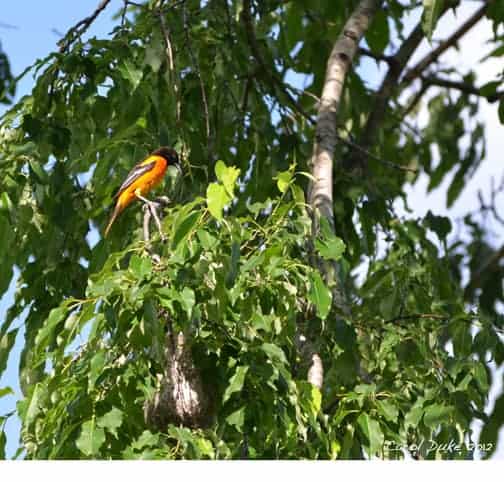
The male was as steadfast in guarding his nestlings as the female was in foraging for food. In the past I have also seen the males bringing food to the young.
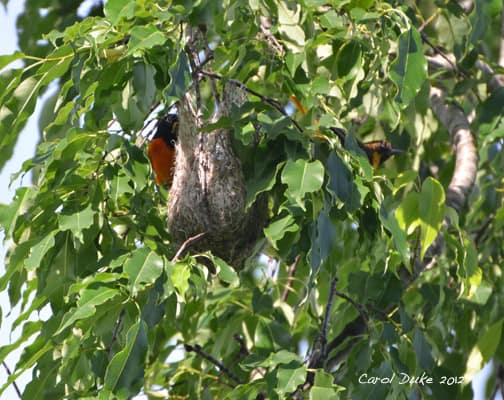
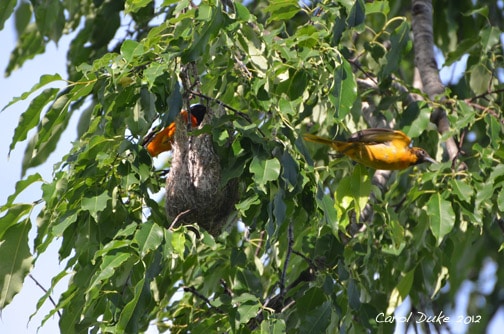
There were times when I had great concern for the safety of the young ones. Recently, I watched as both parents chased a squirrel down from the Black Cherry their nest hangs in, and other times they flew after crows or hawks.
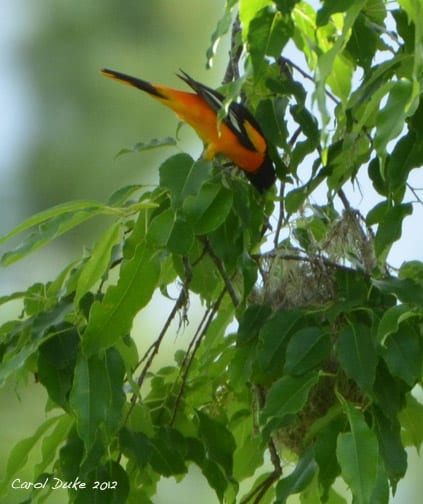
Now the nestlings have become fledglings and the male is somewhat lost . . . or so it seems to me. He comes back to their tree and I do hear him singing out. I have also noted that he has more time for preening . . . a most fastidious fellow.
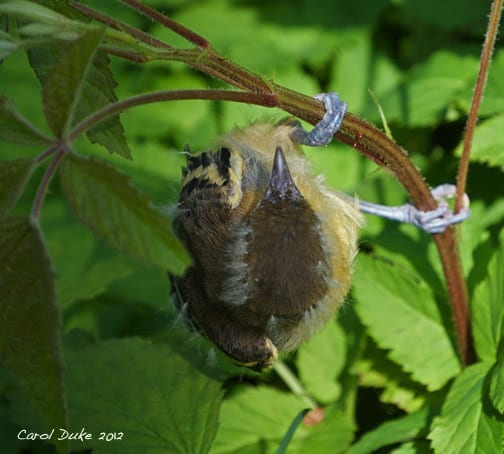
I was very lucky in 2010 to capture this fledgling in our north field. It had just had a narrow escape from a red fox! The panicking parents brought me into the north garden and field . . . I quickly saw a flash of red fleeing towards the blueberry fields.
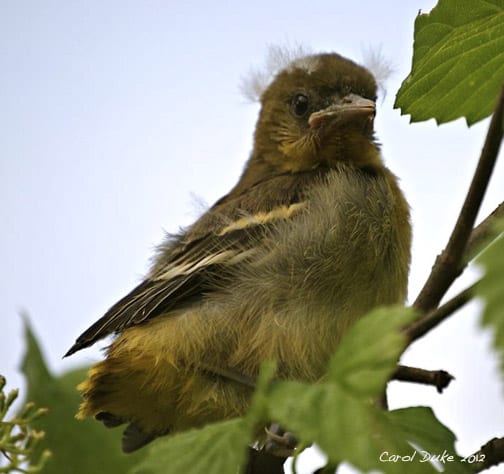
When I walked out into the garden on the second morning, the fledgling had made it up into a viburnum shrub safely away from ground predators. It is possible that this fledgling is now the mature male or female who nested here this year. I would like to think so.
http://flowerhillfarm.blogspot.com/
Carol Duke
Carol Duke is an artist and farmer who has worked with the land on a Western Massachusetts hillside for over thirty years. During this time her land has evolved into a diverse wildlife habitat. Carol features the flora and fauna that live and visit her farm on her blog http://flowerhillfarm.blogspot.com/ As vital wildlife habitats are destroyed daily, Carol hopes to inspire others to garden for wildlife, while becoming activists for wild places the world over. Her nature photography has appeared in magazines, books and newspapers.
Leave a Reply